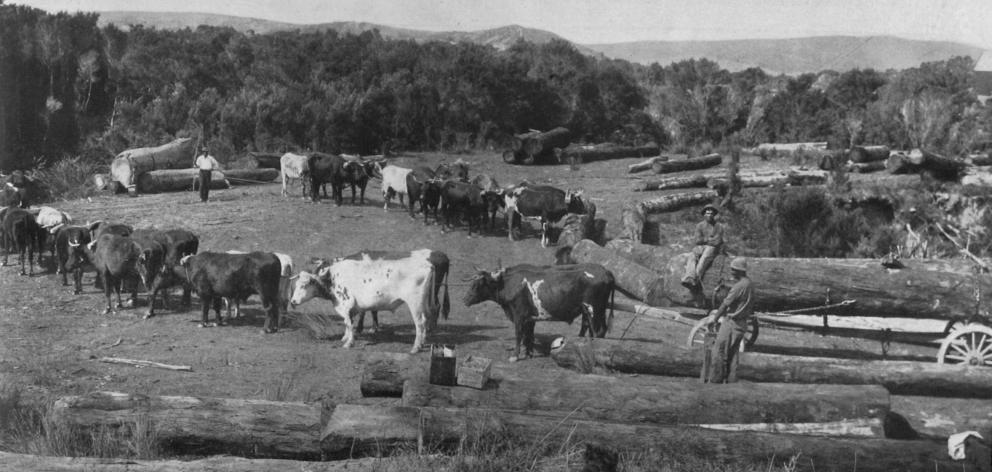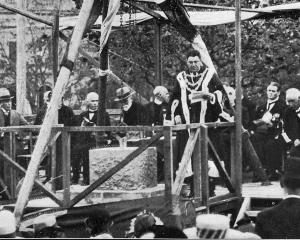
Interest in the event was not diminished by the circumstance that Dr Cook was already in the field with his claims to have been the first to reach the Pole, and the Peary-Cook controversy will be well remembered. Dr Cook's story was never convincing, and he established at the finish a reputation of a kind that was very different from that to which he aspired.
Peary's success in reaching the North Pole was the merited reward of dogged and persistent effort, displayed in no fewer than eight expeditions to the Arctic regions.
For years previously he had asserted his faith that the Pole was to be won by attack along the so-called ‘‘American route’’, which gives access to the shores of the Polar Sea through the straits between north-west Greenland and Ellesmere Land.
Light-fingered gent sent home
Comparatively speaking, New Zealand has but a nodding acquaintance with that type of gentleman who neither toils nor spins, but relies upon his deftness of fingers to profit by the earnings of others.
Of late, however, there has been an undue number of cases of pocket-picking in Wellington (says the Post). The pick-pocket is a difficult man to catch, and more difficult to convict, for unless he is caught red-handed he will probably get away scot-free. But once caught, the pick-pocket is a marked man, disliked most cordially by detectives and police.
A few days ago a detective recognised in an immaculately, almost beautifully, clad young man residing at one of the principal hotels in the city an Australian with a well-established record as a pick-pocket. This young man had no desire for an interview, but the detectives had, and during its course gave him the alternative of taking his departure for Sydney forthwith or
of being hauled before the court.
He chose the sea trip without a moment's hesitation, and left by the Manuka, being farewelled, and closely watched lest he should alter his mind, by representatives of the detective force.
Transport cost challenged
A Dunedin citizen called in at the Times office yesterday afternoon for the purpose of ventilating a grievance against the Defence Department. The Defence authorities are holding a two weeks' training course at the Kensington Drill Hall for pupil teachers, probationers, and teachers who are in the Territorials.
Training begins at 8.30 each morning and finishes at 5 o'clock (Saturdays included). He says that those parents living at the north end of the town and in Roslyn have to bear a heavy expense for tram fares for their sons.
In his own case, as he resides at Roslyn, he has to pay 1s a day, or 6s a week, for tram fares for his son. He considers that boys living in Roslyn or the north end of the town should not be expected to walk to and from the Drill Hall, in addition to putting in eight hours' drill, and that some provision should be made to grant them passes on the tramways.
— ODT, 25.2.1920.
COPIES OF PICTURE AVAILABLE FROM ODT FRONT OFFICE, LOWER STUART ST, OR WWW.OTAGOIMAGES.CO.NZ












